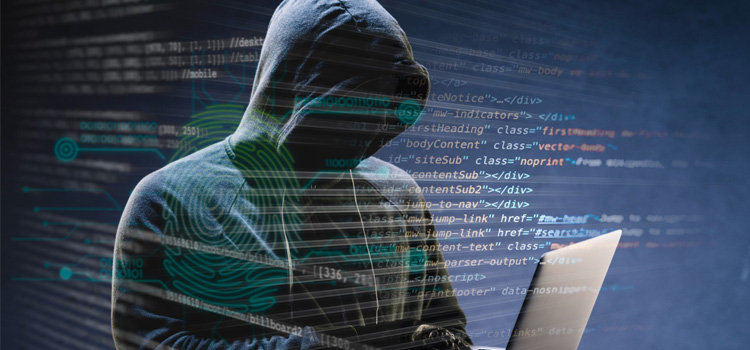Cyber Crime and Cyber Law in India
Posted On : June 24, 2023

Table of Contents
Introduction
With the rapid growth of the digital landscape, the prevalence of cyber crime has surged, necessitating the implementation of robust cyber laws. India, as a rapidly developing nation, has witnessed a significant increase in cyber crime incidents. To safeguard individuals, organizations, and the nation as a whole, the Indian government has enacted comprehensive legislation to combat cyber crime and ensure cyber security. In this article, we will delve into the realm of cyber crime and explore the cyber laws in India that play a crucial role in addressing this growing menace.
What is Cyber Crime?
Cybercrime can be defined as any criminal conduct involving a computer, networked device, or any other similar equipment. Some cybercrimes are committed with the purpose of making money for the perpetrators, while other cybercrimes are committed specifically to harm or disable the computer or other equipment. It's also feasible for other parties to disseminate viruses, unlawful information, photos, or any other type of content through computers or networks.
Types of Cyber Crime
The following are some of the types of cyber crimes;
-
Child Pornography
Predators all throughout the world interact with youngsters online and sexually attack them. In order to lure children into their traps, pedophiles approach them in chat rooms, make friends with them, and steal personal information from their helpless victims.
-
Hacking
Hacking is the process of gaining unauthorized access to a device, making changes to enable continued access, and altering the configuration, operation, or service of the target equipment without the owners' knowledge or consent.
-
Virus Dissemination
This type of illegal activity necessitates either direct or unauthorized access to the operating system by the installation of additional applications that fall under the headings of ss bugs, worms, or logic bombs.
-
Card fraud/ Phishing
It refers to organized crime frequently targets credit card identity information as well as personal and financial credit card details.
-
Spoofing
Get one computer on a network to be its own independent machine, typically a computer with privileged access, so that the other machines can be accessed from anywhere.
-
Cyber Stalking
Cyber Stalking is the practice of tracking or keeping an eye on someone online. A cyber-stalker does not physically pursue their target; instead, they find them after an online interaction and verbally stalk, harass, and threaten them. It violates your right to privacy on the internet.
-
Email Bombing
It refers to sending an excessive volume of mail to a victim, who could be a person, a business, or even mail servers, resulting in a system or network failure.
-
Virus Attacks
Viruses are software programmes that join a computer or a file and then spread to other networked computers and files. They frequently change or remove data from computers.
-
Logic Bombs
This offence requires the occurrence of a particular conditional event. The most notable example is the Chernobyl virus, which was dormant for most of the year and only became active on a specific date.
-
Trojan Attacks
A Trojan is a malicious programme that operates secretly inside normal software to conceal its actual intentions.
-
Cyber squatting
The practice of obtaining a domain name in order to demand money from the owner of a trademark—such as a business name, trade name, or brand name—where one letter is different—is known as typo squatting, or cyber squatting.
-
Cyber Defamation
Cyber defamation is the term used to describe any offensive material intended to harm a person's reputation or brand. The term "cyber defamation" refers to defamation done using computers and/or the Internet.
-
DNS Spoofing
A method of spoofing that makes use of the Domain Name Service, which allows networks to translate textual domain names into the IP addresses needed to send data packets.
-
Dumpster Diving
It is a kind of human intelligence (HUMINT) where data and abandoned things are gathered in an effort to uncover important information.
-
Keystroke Logging
It is recording and encoding keystrokes made by a user. Through the extraction of encryption keys and passwords, this type of application is used to get beyond security measures.
Cyber Law in India
The primary legislation governing cyber crime in India is the Information Technology Act, 2000 (IT Act), which was enacted to provide legal recognition for electronic transactions, digital signatures, and electronic records. The IT Act, along with its subsequent amendments, sets the framework for dealing with cyber crime and establishes provisions for cyber security.
For cyber crimes both The Information Technology Act, 2000 and the Indian Penal Code, 1860 are applicable in India. The Information Technology Act of 2000 is the law that addresses matters relating to online crime and internet trade. The Act was modified in 2008 to include a definition and punishment for cybercrime, nevertheless. Simultaneously, some amendments were made in the Indian Penal Code, 1860 and Reserve Bank of India Act.
Key Provisions of the IT Act
-
Unauthorized Access and Hacking
Section 43 of the IT Act prohibits unauthorized access to computer systems or networks. It also criminalizes hacking activities, making it punishable with imprisonment and fines. -
Data Protection and Privacy
Section 43A and Section 72A of the IT Act address the protection of sensitive personal data and unauthorized disclosure of information. These provisions establish liability for companies and individuals involved in handling personal information. -
Cyber Fraud and Identity Theft
Sections 65 to 77 of the IT Act cover offenses related to cyber fraud, identity theft, and impersonation. These provisions aim to prevent fraudulent activities conducted online and provide legal recourse to the victims. -
Online Defamation and Harassment
Section 66C and Section 67 of the IT Act deal with the offenses of cyber defamation and online harassment, including sending offensive or sexually explicit content electronically. These provisions ensure that individuals are protected from online abuse. -
Cyber Terrorism and National Security
The IT Act was amended in 2008 to introduce provisions to combat cyber terrorism and safeguard national security. Section 66F of the IT Act deals specifically with cyber terrorism offenses.
Key provisions of Indian Penal Code, 1980
As mentioned earlier, Indian Penal Code (IPC) 1860 also provides legal frameworks for the prosecution of identity theft and other associated cyber offences. The most relevant Sections of the IPC that addresses cyber frauds are as follows;
- Fraud (Section 464)
- Section 465 (false documentation)
- Premeditated forgery used to cheat (Section 468)
- Damage to reputation (Section 469)
- Trying to pass off a fake document as a real one (Section 471)
Conclusion
As the digital landscape expands, so does the threat of cyber crime. In India, the Information Technology Act, 2000, serves as the backbone of the legal framework for combating cyber crime and promoting cyber security. However, it is essential to continuously update and strengthen cyber laws to keep pace with evolving cyber threats. Through a combination of robust legislation, technological advancements, and public awareness, India can build a safer digital environment for its citizens and effectively combat cyber crime. It is always advisable to consult Cyber Crime Lawyers if you are facing any problems related to cyber crime for a perfect legal solution.
























